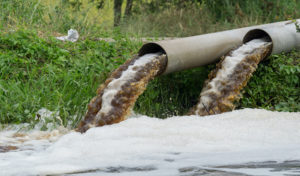
President Trump asks to close a claimed asylum loophole, a major environmental case before the Supreme Court may settle, and more…
IN THE NEWS
- In a presidential memorandum directed to U.S. Attorney General William Barr and Acting Secretary of Homeland Security Kevin McAleenan, President Donald Trump claimed that asylum seekers are abusing a “loophole” in the system and directed his administration to propose policies that remedy the claimed abuse. Specifically, President Trump asked for a proposal that would require asylum seekers to pay a fee and would speed up the immigration system’s handling of asylum applications. The Editorial Board of the Los Angeles Times said that faster application processing is a good idea in theory—if the administration can “really accomplish it while respecting due process and reaching fair decisions”—but the Times called the fee proposal “punitive and counterproductive.”
- What some legal observers have called “the biggest environmental case on the Supreme Court’s docket in years” may not happen at all, as the parties to the litigation reportedly are considering settlement. Maui v. Hawaii Wildlife Fund, which has been scheduled to be argued before the U.S. Supreme Court this fall, would decide whether indirect water pollution violates the Clean Water Act. If the parties to Maui settle, commentators expect that it would only delay the answer to the question presented to the Court, as other lawsuits have raised the question of whether the Clean Water Act applies to indirect pollution.
- Michigan Governor Gretchen Whitmer established a statewide Marijuana Regulatory Agency to oversee licensing and enforcement issues as the state transitions to legalized marijuana. The Governor’s executive order consolidated the powers of previous state regulatory agencies into a single “dedicated state agency” to promote “efficient administration and effectiveness of government.”
- In its quarterly filing to the U.S. Securities and Exchange Commission, Ford Motor Company disclosed that it is being criminally investigated by the U.S. Department of Justice (DOJ) for a matter relating to emissions certification. The company said that it had voluntarily disclosed the matter to DOJ and that the matter does not involve the use of so-called “defeat devices,” which are designed to game emissions tests. In 2017, Volkswagen voluntarily pleaded guilty to using defeat devices to thwart emissions testing following charges that the company had violated the Clean Air Act.
- The U.S. Food and Drug Administration (FDA) approved the first vaccine to prevent all four subtypes of dengue disease in people who have previously been infected with one subtype. The dengue virus is spread by mosquitos, and the first infection is often mild. But a second infection is often very severe—making the vaccine “an important step” in addressing the impact of dengue in tropical regions like Puerto Rico and the U.S. Virgin Islands, according to Anna Abram, FDA’s deputy commissioner for policy, legislation, and international affairs.
- U.S. Senators Ed Markey (D-Mass.) and John Thune (R-S.D.) sent a letter to Transportation Secretary Elaine Chao asking the Federal Aviation Administration to propose a rule for identifying drones and their operators. The senators observed that recent drone incursions in London and Newark had disrupted thousands of flights and noted that this rulemaking would serve as a linchpin for future drone regulations.
- New York City Mayor Bill de Blasio issued an executive order banning alcohol advertisements on city property. The order reaffirms the city’s commitment to health equity, according to Mayor de Blasio. Alcohol industry groups opposed the order, with Jay Hibbard, vice president of the Distilled Spirits Council, calling it “misguided and unsupported by the scientific research.”
- The Restore California renewable restaurant initiative became available to all restaurants in the state. Under this initiative, California restaurants may add an optional 1 percent surcharge to all checks, with the proceeds going to a California Air Resources Board fund that pays farmers for removing carbon from the atmosphere.
- President Donald J. Trump nominated John E. Kramer to serve as the Chief Financial Officer and Assistant Secretary of Budget and Programs at the U.S. Department of Transportation. Kramer currently serves as Deputy Assistant Secretary for Budget and Finance at the Transportation Department. If confirmed by the U.S. Senate, Kramer will serve as the primary fiscal advisor to U.S. Secretary of Transportation Elaine L. Chao.
- President Trump also tweeted that Stephen Moore decided to withdraw from consideration for membership on the Federal Reserve Board but praised him as “a great pro-growth economist.” Several lawmakers had criticized Moore for his policies as well as for his past comments about women. In response to these comments, U.S. Senator Jeanne Shaheen (D-N.H.) described him as “unfit to make economic decisions on behalf of women.”
WHAT WE’RE READING THIS WEEK
- The growing development of algorithms to predict health outcomes—a field known as predictive health analytics—presents concerns that can be mitigated through regulation, wrote Sharona Hoffman of the Case Western Reserve University School of Law in an article forthcoming in the North Carolina Law Review. Hoffman claimed that subjects of predictive health analytics are at risk of privacy violations, psychological distress, and other harms. She recommended broadening the coverage of the Health Insurance Portability and Accountability Act and the Americans With Disabilities Act to protect predictive data as well as individuals who “are perceived as likely to develop physical or mental impairments in the future.”
- Policies to regulate and stabilize the financial sector should be global, argued Claude Lopez of the Milken Institute and Franco Bruni of the Italian Institute for International Political Studies in a recent policy brief. When international financial firms face a potential economic crisis at one of their foreign branches, Lopez and Bruni contended, “local regulators may require help from home regulators” in the financial firm’s own country. They argued that international risk monitoring and management would be best served by globally standardized industry practices, regulatory infrastructures, and information sharing.
- More happily married Americans with disabilities are choosing to divorce rather than lose their health care benefits, according to a report by Carly Stern of Ozy. Stern notes that Supplemental Security Income, a federal program intended in part for Americans with disabilities, pays out less to married couples because they are assumed to share expenses such as housing. Similarly, married people generally are not eligible for the Disabled Adult Child program and Medicaid eligibility generally depends on household rather than individual income, leading some to divorce to keep their eligibility.



